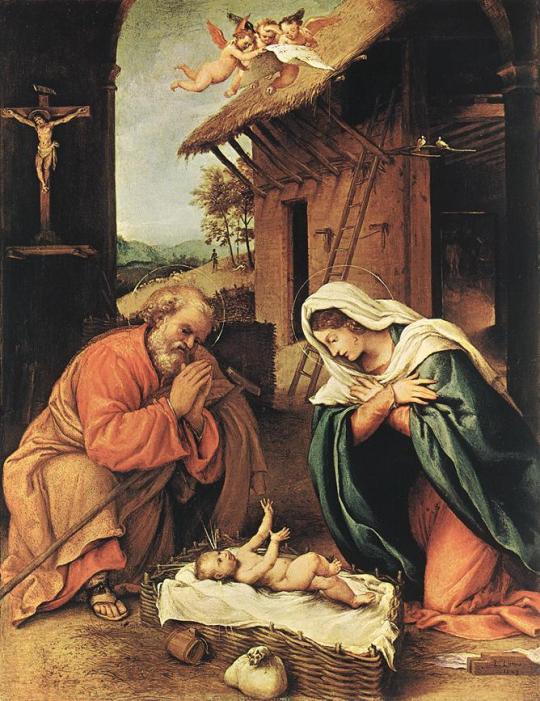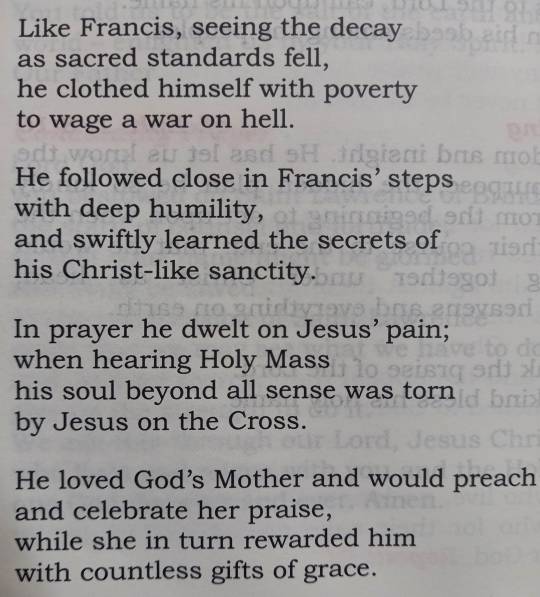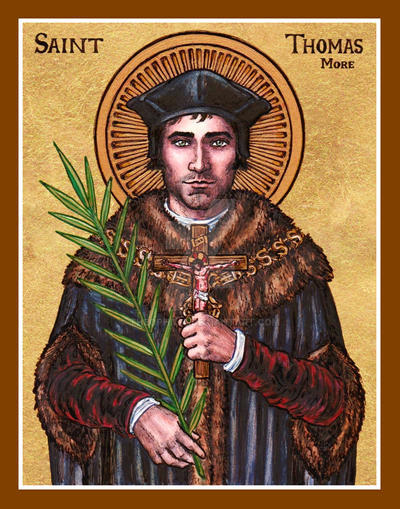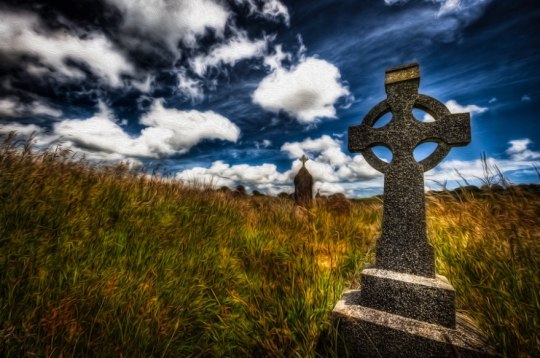Text
“He that taketh not up his cross, and followeth Me, is not worthy of Me” (Mt 10:38). By these words, the divine Master expressly declares that one of the indispensable conditions for being His disciple is to carry the cross. The word cross, however, should not make us think only of special sufferings, which, while not excluded, are not generally our portion. First of all, we must think of those common daily disagreeable things which are part of everyone’s life and which we must try to accept as so many means to progress and spiritual fruitfulness.
It is often easier to accept, in a burst of generosity, the great sacrifices and sufferings of singular occurrence than the little, insignificant sufferings, closely connected with our state of life and the fulfillment of our duty: sufferings which occur daily under the same form, with the same intensity and insistence, among endless and unchanging circumstances. These may include physical ailments caused by poor health, economic restrictions, the fatigue attendant upon overwork or anxiety; they may be moral sufferings resulting from differences of opinion, clash of temperaments, or misunderstandings.
Herein lies the genuine cross that Jesus offers us daily, inviting us to carry it after Him–an unpretentious cross, which does not require great heroism, but which does demand that we repeat our Fiat every day, meekly bowing our shoulders to carry its weight with generosity and love. The value, the fruitfulness of our daily sacrifices comes from this unreserved acceptance, which makes us receive them just as God offers them to us, without trying to avoid them or to lessen their weight: “Yea, Father, for so hath it seemed good in Thy sight” (Mt 11:26).
Dan Burke
#cross#suffering#Christian#Christianity#Catholic#Catholicism#Bible#scripture#sacrifice#Jesus#Christ#Jesus Christ#spirituality
19 notes
·
View notes
Text
'Jesus’ words from the Gospel of Luke surfaced in my mind: “And he said to them in reply, ‘Go and tell John what you have seen and heard: the blind regain their sight, the lame walk, lepers are cleansed, the deaf hear, the dead are raised, the poor have the good news proclaimed to them.’” (Luke 7:22)
What was also clear was that these healings would form five mysteries to meditate on through the Rosary (or six – to include “the poor have the good news proclaimed to them” if you pray a Brigittine Rosary). Praying with these mysteries has opened my eyes to just how much Jesus can and will heal me.'
#prayer#healing#Jesus#Christ#Jesus Christ#rosary#Catholic#Catholicism#Christian#Christianity#Bible#scripture#Gospel#New Testament#Good News
10 notes
·
View notes
Text

St Benedict Monastery, Our Lady of Manaoag, Carmen, Cebu
O tiny Infant! I would not be so bold as to lie at Your feet, except that You Yourself have invited me to come near. My sins have caused You to cry so many tears while in Your stable at Bethlehem.
But since You have come to earth to forgive repentant sinners, please forgive me, also. I regret with all my heart having ignored You so often. You give so many great graces to everyone on this holy night. Bring peace to my soul and to the world.
The one gift I ask for this Christmas is the grace to love You forever with my whole heart. Inflame me, Lord, with Your love! I do love You, O God, Who has become a mere child for me. Never let me stop loving You.
Mary, my mother, God will do all things you ask in prayer. Pray to Jesus for me.
-- St Alphonsus Maria de Liguori
#prayer#Holy Family#Nativity#Christmas#Catholic#Catholicism#Christian#Christianity#sacred art#sculpture#The Philippines#Cebu#St Alphonsus Liguori#Redemptorist#sin#redemption#God#salvation#peace#repentance#grace#gift
13 notes
·
View notes
Text

Nativity -- Lorenzo Lotto (1523)
A Child My Choice
by St Robert Southwell SJ
Let folly praise that fancy loves, I praise and love that Child
Whose heart no thought, whose tongue no word, whose hand no deed defiled.
I praise Him most, I love Him best, all praise and love is His;
While Him I love, in Him I live, and cannot live amiss.
Love's sweetest mark, laud's highest theme, man's most desired light,
To love Him life, to leave Him death, to live in Him delight.
He mine by gift, I His by debt, thus each to other due;
First friend He was, best friend He is, all times will try Him true.
Though young, yet wise; though small, yet strong; though man, yet God He is:
As wise, He knows; as strong, He can; as God, He loves to bless.
His knowledge rules, His strength defends, His love doth cherish all;
His birth our joy, His life our light, His death our end of thrall.
Alas! He weeps, He sighs, He pants, yet do His angels sing;
Out of His tears, His sighs and throbs, doth bud a joyful spring.
Almighty Babe, whose tender arms can force all foes to fly,
Correct my faults, protect my life, direct me when I die!
#Catholic#Christian#Christianity#Christmas#Jesuit#poem#poetry#Catholicism#Jesus#Christ#Jesus Christ#cross#crucifix#painting#sacred art#Holy Family#Child Jesus#Infant Jesus#Nativity#art
65 notes
·
View notes
Text
'The challenge is, as Rafael puts it, that “yes, all of humanity suffers, but there are so few who know how to suffer.” For Rafael, to suffer well means to take up the cross God is giving us, not the one we choose. Learning to suffer and learning to wait go hand in hand, because it takes time and stillness to be able to discern and embrace God’s will for our lives.'
#Trappist#monastic life#monasticism#Catholic#Christianity#Catholicism#religion#faith#saint#saints#monk#monks#religious life#cross#waiting#patience#suffering#wisdom#God#God's love#love of God#love#spirituality#illness#diabetes#Spain#Jesus#God's plan#God's will
15 notes
·
View notes
Text

Hymn for evening prayer
Feast of St Lawrence of Brindisi
#St Lawrence of Brindisi#Capuchin#cross#Jesus#Christ#Jesus Christ#saint#saints#Catholic#Catholicism#Christian#Christianity#Franciscan#friars#religious#religion#faith#hymn#Mother Mary#Mary#Our Lady#Holy Mass#Mass#St Francis#humility#sanctity#holiness
8 notes
·
View notes
Text
#cross#sacramental#history#Spain#Catholic#Catholicism#Christian#Christianity#religion#faith#Europe#Cordoba
1 note
·
View note
Text

'In a church inside the Monastery of Santa Ana and San Jose in Cordoba, Spain, there is an ancient cross. It is the image of the Cross of Forgiveness that shows Jesus crucified with His right arm stripped off the Cross and down.
They tell that one day a sinner went to confess to the priest under this cross. As usual, when a sinner was guilty of a serious sin, this priest acted very strictly.
Not long later, this person fell back and after confessing their sins, the priest threatened: ''This is the last time I'll forgive you.''
Many months passed and that sinner went to kneel down at the priest's feet under the cross and asked for forgiveness again. But on this occasion, the priest was clear and said, ''Don't play with God, please. I can't allow you to keep sinning"
But strangely, when the priest rejected the sinner, a noise from the cross was suddenly heard. The right hand of Jesus dropped; moved by that man's repentance, the following words were heard: ''I am the one who shed the blood on this person, not you.''
Since then, the right hand of Jesus remains in that position, for it continually invites man to ask and receive forgiveness.'
#forgiveness#cross#Jesus#Christ#Jesus Christ#Catholic#Christianity#Catholicism#Christian#Spain#Europe#Confession#repentance#Cordoba
1K notes
·
View notes
Text

“I thirst.” These two simple words have so much meaning. They were spoken by our Lord from the Cross. A soldier tried to offer some comfort by offering Him a sponge soaked in wine-vinegar to satiate Him. The wine turned to vinegar is a symbol of the soul turned sour from sin. After taking this sour wine Jesus cried, “It is finished!” And then He died.
What does Jesus thirst for? He thirsts for you, a sinner. He does not turn away from you on account of your sins and the effect that they have had on your soul; He thirsts for you anyway. He thirsts for your love. He wants you to satiate His thirst by loving Him as you are despite your sins. Pay no attention to the foulness of your soul as a result of your sins. Our Lord was satisfied with the wine turned vinegar so as to say that He is satisfied with you coming to Him in your fallen condition.
Reflect upon the image of the Crucifixion. Ponder Jesus hanging there, broken and suffering. In this state of great humiliation, Jesus cries out to you to bring comfort to His suffering. He seeks your love. Will you give it to Him? Can you offer Him yourself so as to enable Him to cry out that it is finished? It is finished when you love Him and give your life to Him. Go to our Lord this day in prayer, and tell Him you love Him and desire to spend this life with Him and on through eternity. In that act, you will quench His thirst.
#I Thirst#Catholic#Catholicism#Christian#Christianity#Jesus#God#Christ#Jesus Christ#cross#crucifix#God's love#prayer#faith#religion#love#love of God#thirst#sin#suffering#humiliation#crucifixion#Bible#scripture#Gospel#love God
42 notes
·
View notes
Text

Icon by Theophilia
'To such a [wavering, fearful, uncertain] person [suffering a trial], Christ wanted his own deed to speak out (as it were) with His own living voice,
“O faint of heart, take courage and do not despair. You are afraid, you are sad, you are stricken with weariness and dread of the torment with which you have been cruelly threatened. Trust Me.
I conquered the world, and yet I suffered immeasurably more from fear, I was sadder, more afflicted with weariness, more horrified at the prospect of such cruel suffering drawing eagerly nearer and nearer.
Let the brave man have his high-spirited martyrs, let him rejoice in imitating a thousand of them. But you, my timorous and feeble little sheep, be content to have Me alone as your shepherd, follow My leadership; if you do not trust yourself, place your trust in Me.
See, I am walking ahead of you along this fearful road. Take hold of the border of My garment and you will feel going out from it a power which will stay your heart’s blood from issuing vain fears and will make your mind more cheerful, especially when you remember that you are following closely in My footsteps (and I am to be trusted and will not allow you to be tempted beyond what you can bear, but I will give together with the temptation a way out that you may be able to endure it), and likewise when you remember that this light and momentary burden of tribulation will prepare for you a weight of glory which is beyond all measure.
For the sufferings of this time are not worthy to be compared with the glory to come which will be revealed in you. As you reflect on such things, take heart and use the sign of My cross to drive away this dread, this sadness, fear and weariness like vain spectres of the darkness.
Advance successfully and press through all obstacles, firmly confident that I will champion your cause until you are victorious and then in turn will reward you with the laurel crown of victory.'
-- St Thomas More
#St Thomas More#suffering#agony#Jesus#Christ#Jesus Christ#Catholic#Catholicism#Christian#Christianity#saints#fear#God#courage#strength#cross
37 notes
·
View notes
Text

Fight like a good soldier, and if you sometimes fall through weakness, rise again with greater strength than before, trusting in God's most abundant grace.
-- Thomas á Kempis
#cross#crucifix#soldier#grace#God#Thomas á Kempis#Catholic#Christian#Christianity#Catholicism#faith#strength#religion#perseverance#virtue
108 notes
·
View notes
Text

Why God permits crosses: He permits mental crosses, like worries, fear, anxieties, to make us feel His absence. If our love of goodness does not draw us to Him, at least our weariness will throw us back to Him. He permits physical crosses like sufferings to make us feel His Presence. Sickness forcibly draws us away from the world and its pleasures, and makes us realize that His scarred Hands cannot touch us without leaving wounds.
-- Archbishop Fulton Sheen
#cross#crucifix#church#Catholic#Catholicism#Christian#Christianity#religion#faith#Fulton Sheen#God#crosses#suffering#pain#anxiety#fear#worry#sickness#illness#wounds#spirituality
17 notes
·
View notes
Text

Sleep tends to be the common experience of letting one’s self go, as is the case with all moments of rest (good or bad). Anthropologically (philosophically) speaking, man was made to rest. In this sense, we might say that letting one’s self go is a necessary dimension of being human. But to qualify this act: we are letting ourselves go into what is ultimately good. (Rest in God)
In this way, excessive control of one’s self is actually a type of vice. Metaphorically it would be like the soul imitating a body always tense, always utilising one’s muscles as though to become rigid, and inflexible.
I think this is the point of virtue -- that our left hand doesn’t know what our right hand is doing. When we do the good for good reason, habitually it becomes second nature to us. In some cases, to have these virtues is to somewhat not even realise that we have them. They simply flow out of our daily attitudes and acts naturally.
But one who exerts strenuous effort to do some externally good act reveals to others perhaps a fault. Perhaps the good habit isn’t there. Perhaps the externally good action isn’t done for the right reason. It’s like that fakery of a smile plastered on a person’s face that communicates something empty. It’s that cleaning of the outside of a cup, but not the inside.
If doing what is good is latently resented by the amount of energy and difficulties required -- it seems empty. I think that’s why sometimes we see people leave the priesthood or seminary or married life or whatever, and end up entering into all sorts of absurd and contrary actions to their vocation. The virtue -- the internalisation of chastity or charity, never happened -- just the external acts, perhaps white-knuckled.
Sometimes Christ has been described in the spiritual sense to be at rest on the cross. Can we relate? Today if a man on the street spat on your face, would you be more concerned for him? Would it be easy to see him as a brother and not worry about our own ego? This virtue requires no control of impulses, or bridling anger. It’s just the fruit of knowing the poor, and serving them in charity.
To circle back to the original point -- we were made for rest. If doing the good is constantly difficult, we might want to ask why. What is preventing the good from becoming second nature to us? Have we perhaps ascribed more meaning to hard work and busyness than we ought to? Are we only doing externally good acts without an interiorly good spirit? Are our good deeds mere external acts, like whitewashed tombs?
Don’t burn out -- instead build virtue. Virtue is only understood properly when married to the interior life. Let your whole self go into what is truly good, and there will be less fragility at the sight of a cross. In fact, we may find rest in it.
~ Fr Christopher Pietraszko
#Catholic#Christianity#Christian#Catholicism#faith#virtue#religion#cross#sleep#rest#control#goodness#interior life
5 notes
·
View notes
Text

Calvary -- Michael Godard (2008)
Perhaps you are filled with shame for causing My bitter passion. Do not be afraid. This cross inflicts a mortal injury, not on Me, but on death. These nails no longer pain Me, but only deepen your love for me. I do not cry out because of these wounds, but through them I draw you into My heart.
My body was stretched on the cross as a symbol, not of how much I suffered, but of My all-embracing love. I count it no less to shed My blood: it is the price I have paid for your ransom. Come, then, return to Me and learn to know Me as your Father, Who repays good for evil, love for injury, and boundless charity for piercing wounds.
~ from a sermon by Saint Peter Chrysologus, bishop
#Catholic#Catholicism#Christian#Christianity#cross#crucifix#Jesus#Christ#Jesus Christ#God#faith#God's love#virtue#wounds#love#sacrifice#St Peter Chrysologus#sermon#Easter#Paschaltide#death#pain#love of God#God the Father
6 notes
·
View notes
Text

"My pain was the key that opened for me the door of my prison – my solitude, and admitted me into the immensity of a new world – the sympathy of Christ, Who in His Passion chose to suffer the pain of every human soul, because on the Cross He took that soul and all its sin and suffering into His heart."
– Fr George Congreve, SSJE, Treasures of Hope for the Evening of Life (quoted in The Portal, May 2022)
#suffering#pain#Jesus#Christ#Jesus Christ#soul#sin#Catholic#Catholicism#Christian#Christianity#rosary#cross#crucifix#God#Passion of Christ#salvation
31 notes
·
View notes
Text

"Does Christ reign in your heart? Ask the things you have stored up there. See what they tell you. Does self-reliance seem like the most reliable way home? Everyone has a list of failures to demolish that claim. Only knowing the Lord as your yokemate and redeemer enables a passage through the strictest crevice. The approach is all different: no longer trying like a fly to buzz through a sunlit window pane, but as one carried not along the way, but by Him who is the Way."
-- Father John Henry Hanson, O. Praem.
#God#Jesus#Christ#Jesus Christ#faith#religion#Catholic#Catholicism#Christian#Christianity#Norbertine#quote#trust in God#cross#crucifix#altar#sanctuary#church#monastery#chapel#sacred art
98 notes
·
View notes
Text

The Agony
George Herbert
Philosophers have measur’d mountains,
Fathom’d the depths of seas, of states and kings;
Walk’d with a staff to heav’n and traced fountains:
But there are two vast, spacious things,
The which to measure it doth more behove;
Yet few there are that sound them, ‒ Sin and Love.
Who would know Sin, let him repair
Unto Mount Olivet; there shall he see
A Man so wrung with pains, that all His hair,
His skin, His garments bloody be.
Sin is that press and vice, which forceth pain
To hunt his cruel food through ev’ry vein.
Who knows not Love, let him assay
And taste that juice which, on the cross, a pike
Did set again abroach; then let him say
If ever he did taste the like,
Love is that liquor sweet and most divine,
Which my God feels as blood, but I as wine.
#poem#poetry#Catholic#Catholicism#Christian#Christianity#Good Friday#crucifixion#suffering#passion#agony#Jesus#Christ#Jesus Christ#pain#God#sin#love#God's love#Anglican#George Herbert
18 notes
·
View notes